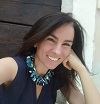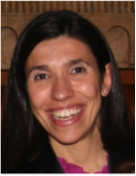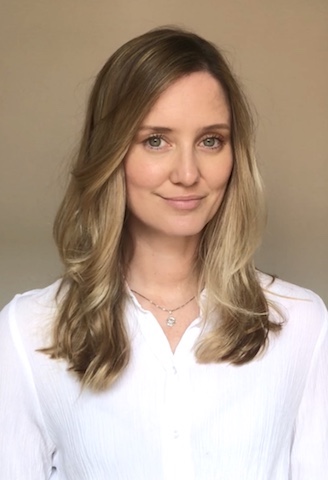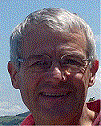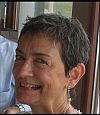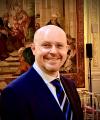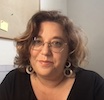Studying at the University of Verona
Here you can find information on the organisational aspects of the Programme, lecture timetables, learning activities and useful contact details for your time at the University, from enrolment to graduation.
Academic calendar
The academic calendar shows the deadlines and scheduled events that are relevant to students, teaching and technical-administrative staff of the University. Public holidays and University closures are also indicated. The academic year normally begins on 1 October each year and ends on 30 September of the following year.
Course calendar
The Academic Calendar sets out the degree programme lecture and exam timetables, as well as the relevant university closure dates..
| Period | From | To |
|---|---|---|
| Sem. 1A | Sep 24, 2018 | Oct 27, 2018 |
| Sem. 1B | Nov 19, 2018 | Dec 21, 2018 |
| Sem. 2A | Feb 18, 2019 | Mar 23, 2019 |
| Sem. 2B | Apr 8, 2019 | May 18, 2019 |
| Session | From | To |
|---|---|---|
| Sessione d'esame Invernale | Jan 21, 2019 | Feb 16, 2019 |
| Sessione d'esame Estiva | Jun 17, 2019 | Jul 27, 2019 |
| Sessione d'esame Autunnale | Aug 26, 2019 | Sep 21, 2019 |
| Session | From | To |
|---|---|---|
| Sessione Invernale | Feb 27, 2019 | Mar 13, 2019 |
| Sessione Estiva - I appello | Jun 10, 2019 | Jun 24, 2019 |
| Sessione Estiva - II appello | Jul 3, 2019 | Jul 16, 2019 |
| Sessione Autunnale - I appello | Oct 9, 2019 | Oct 21, 2019 |
| Sessione Autunnale - II appello | Dec 4, 2019 | Dec 17, 2019 |
| Period | From | To |
|---|---|---|
| Festa di Ognissanti | Nov 1, 2018 | Nov 1, 2018 |
| Festa dell’Immacolata | Dec 8, 2018 | Dec 8, 2018 |
| Vacanze di Natale | Dec 22, 2018 | Jan 6, 2019 |
| Vacanze di Pasqua | Apr 19, 2019 | Apr 23, 2019 |
| Festa della liberazione | Apr 25, 2019 | Apr 25, 2019 |
| Festa del lavoro | May 1, 2019 | May 1, 2019 |
| Festa del Santo Patrono - S. Zeno | May 21, 2019 | May 21, 2019 |
| Festa della Repubblica | Jun 2, 2019 | Jun 2, 2019 |
| Description | Period | From | To |
|---|---|---|---|
| Prima parte del primo semestre | Lab. 1A | Oct 29, 2018 | Nov 10, 2018 |
| Seconda parte del primo semestre | Lab. 1B | Jan 7, 2019 | Jan 19, 2019 |
| Prima parte del secondo semestre | Lab. 2A | Mar 25, 2019 | Apr 6, 2019 |
| Seconda parte del secondo semestre | Lab. 2B | May 20, 2019 | Jun 1, 2019 |
Exam calendar
Exam dates and rounds are managed by the relevant Humanistic Studies Teaching and Student Services Unit.
To view all the exam sessions available, please use the Exam dashboard on ESSE3.
If you forgot your login details or have problems logging in, please contact the relevant IT HelpDesk, or check the login details recovery web page.
Should you have any doubts or questions, please check the Enrollment FAQs
Academic staff
 monica.antonello@univr.it
monica.antonello@univr.it
 3409616648
3409616648
 giacomo.bozzo@univr.it
giacomo.bozzo@univr.it
 paolamaria.caleffi@univr.it
paolamaria.caleffi@univr.it
 simona.carta@univr.it
simona.carta@univr.it
 gilberto.ferraro@unipd.it
gilberto.ferraro@unipd.it
Ganzerla Luca Giovanni Michelangelo
 lucagiovanni.ganzerla@univr.it
lucagiovanni.ganzerla@univr.it
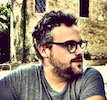
Ghirotto Luca
 luca.ghirotto@univr.it
luca.ghirotto@univr.it
 licia.landi@univr.it
licia.landi@univr.it
 giuseppe.longo@univr.it
giuseppe.longo@univr.it
 beatrice.melodiafesta@univr.it
beatrice.melodiafesta@univr.it
 anja.meyer@univr.it
anja.meyer@univr.it

Migliorati Lorenzo
 lorenzo.migliorati@univr.it
lorenzo.migliorati@univr.it
 045802 8135
045802 8135
 maria.mori@univr.it
maria.mori@univr.it
 paolo.nitti@univr.it
paolo.nitti@univr.it
 michele.picotti@univr.it
michele.picotti@univr.it
 stefania.pontrandolfo@univr.it
stefania.pontrandolfo@univr.it
 cristina.richieri@univr.it
cristina.richieri@univr.it
 lucasimone.rizzo@univr.it / lucasimone.rizzo@unipd.it
lucasimone.rizzo@univr.it / lucasimone.rizzo@unipd.it
 paola.schiano@univr.it
paola.schiano@univr.it
 federica.zantedeschi@univr.it
federica.zantedeschi@univr.it
Study Plan
The Study Plan includes all modules, teaching and learning activities that each student will need to undertake during their time at the University.
Please select your Study Plan based on your enrollment year.
1° Year
| Modules | Credits | TAF | SSD |
|---|
2° Year activated in the A.Y. 2019/2020
| Modules | Credits | TAF | SSD |
|---|
3° Year activated in the A.Y. 2020/2021
| Modules | Credits | TAF | SSD |
|---|
4° Year activated in the A.Y. 2021/2022
| Modules | Credits | TAF | SSD |
|---|
English laboratory 4th year
5° Year activated in the A.Y. 2022/2023
| Modules | Credits | TAF | SSD |
|---|
| Modules | Credits | TAF | SSD |
|---|
| Modules | Credits | TAF | SSD |
|---|
| Modules | Credits | TAF | SSD |
|---|
| Modules | Credits | TAF | SSD |
|---|
English laboratory 4th year
| Modules | Credits | TAF | SSD |
|---|
| Modules | Credits | TAF | SSD |
|---|
Legend | Type of training activity (TTA)
TAF (Type of Educational Activity) All courses and activities are classified into different types of educational activities, indicated by a letter.
Type D and Type F activities
Modules not yet included
Educational Psychology for Special Needs (2019/2020)
Teaching code
4S006148
Credits
9
Language
Italian
Scientific Disciplinary Sector (SSD)
M-PSI/04 - DEVELOPMENTAL AND EDUCATIONAL PSYCHOLOGY
The teaching is organized as follows:
Lezioni
Laboratorio [Gruppo 1]
Laboratorio [Gruppo 2]
Laboratorio [Gruppo 3]
Laboratorio [Gruppo 4]
Learning outcomes
1. Knowledge and understanding
Infant school
By the end of the course the student will be able to:
- consider critically the relationships between the neuro-biological and the contextual factors that influence the development of preschool children with disabilities and special educational needs;
- identify and explain the development of the learning processes in infant school, with reference to the main theoretical models;
- identify and explain the principal classifications and characteristics of disabilities and special educational needs in the context of the design of educational projects in infant school;
- analyze individual development and difficulties in the context of the design of educational projects in infants school for promoting well-being and inclusion.
Primary school
By the end of the course the student will be able to:
- consider critically the relationships between the neuro-biological and the contextual factors that influence the development of children in primary school with disabilities and special educational needs;
- identify and explain the development of the learning processes in primary schools, with reference to the main theoretical models;
- identify and explain the principal classifications and characteristics of disabilities and special educational needs in the context of the design of educational projects in primary school;
- analyze individual development and difficulties in the context of the design of educational projects in primary school for promoting well-being and inclusion.
2. Application of knowledge and understanding
Infant school
By the end of the course the student will be able to:
- choose the best instruments and methodologies in order to design and implement educational programming in infant school, particularly for promoting well-being and inclusion in the context of language delays and learning difficulties;
- identify early risk indicators in infant school when planning and designing educational projects for individual with disabilities and special educational needs intended to promote social inclusion;
- analyse and choose the best instruments for observation, assessment and design in infant school.
Primary school
By the end of the course the student will be able to:
- choose the best instruments and methodologies in order to design and implement educational programming in primary school, particularly for promoting well-being and inclusion in the context of language delays and learning difficulties;
- identify early risk indicators in primary school when planning and designing educational projects for individual with disabilities and special educational needs intended to promote social inclusion;
- analyse and choose the best instruments for observation, assessment and design in primary school.
3. Making judgements
Infant school
By the end of the course the student will be able to:
- reflect critically on the learning and language processes at work in infant school for disabilities and special educational needs;
- evaluate their own communicative and relational competence when designing projects with reference to infant school.
Primary school
By the end of the course the student will be able to:
- reflect critically on the learning and language processes at work in primary school for disabilities and special educational needs;
- evaluate their own communicative and relational competence when designing projects in reference to primary school.
4. Communication skills
Infanto school
By the end of the course the student will be able to:
- use language clearly, including technical terms where appropriate, in discussing the knowledge acquired with reference to infant school;
- communicate with all participants in learning programmes in infant school, such that knowledge and understanding are developed at all levels.
Primary school
By the end of the course the student will be able to:
- use language clearly, including technical terms where appropriate, in discussing the knowledge acquired with reference to primary school;
- communicate with all participants in learning programmes in primary school, such that knowledge and understanding are developed at all levels.
5. Learning skills
Infant school
By the end of the course the student will be able to:
- recognise learning abilities and development processes in a wide range of preschool children and groups, such that they can enhance all learning styles;
- identify the resources and methods best suited for the development of training arrangements for disabilities and special educational needs in preschool children.
Primary school
By the end of the course the student will be able to:
- recognise learning abilities and development processes in a wide range of children and groups in primary school, such that they can enhance all learning styles;
- identify the resources and methods best suited for the development of training arrangements for disabilities and special educational needs in children in primary school.
Program
1) Introduction. The principal theoretical, epistemological, methodological and educational issues in children’s language and learning development. Distinctions between i) language delay and language impairment and ii) learning difficulties and disabilities. 2) Linguistic, cognitive, socio-emotional and motivational aspects of children’s language and learning development. 3) Language delay and impairment: definitions, classifications, theoretical models. Language and social development in deaf children. Specific Language Impairment (SLI). Observational procedures in educational and family contexts. Prerequisites and early indicators of language difficulties. Early intervention programs for language delay in infant school. Attention and memory in learning and language impairments. 4) Theoretical model for learning development. Learning difficulties and developmental language disorder (DLD). The relationship between DLD and dyslexia. Principal diagnostic categories of learning difficulties and disabilities. 5) Language and learning in children with cognitive disabilities, autism spectrum disorders and ADHD. 6) Prerequisites and early indicators of learning disabilities: the problem of a screening procedure. Recent norms in diagnosis and educational programs. School and specific learning disabilities. Support programs for families and teachers. Well-being and inclusion in infant and primary school. Tests to be studies before the exam Cornoldi, C. (2013). Le difficoltà di apprendimento a scuola. II ed. Bologna: Edizioni Il Mulino. Zanobini, M., & Usai, M.C. (2011). Psicologia della disabilità e dei disturbi dello sviluppo. Milano: Franco Angeli. Cornoldi C., Zaccaria, S. (2011). In classe ho un bambino che…. Firenze: Giunti. Ianes, D. (2005). Bisogni Educativi Speciali e inclusione. Trento: Ed Erickson. Other recommended tests INTERACT per il bambino parlatore tardivo. Milano: Franco Angeli. (del cap. 1 solo pp. 24-27, esclusa parte sulla fonetica; cap. 2 tutto; cap. 3 solo par 3.5; cap. 4 fino a p.119; cap. 5 solo 5.1 e 5.2; cap 6 e 7 e 8 tutto; 9 escluso) D’Amico, S., & Devescovi, A. (2013). Psicologia dello sviluppo del linguaggio . Bologna: Il Mulino. (Cap. I, IV, V, VI, X, XI, XII) Cornoldi C., Zaccaria, S. (2011). In classe ho un bambino che…. Firenze: Giunti. Stella, G., Grandi, L. (2011). Come leggere la dislessia e I DSA. Guida base. Firenze: Giunti Scuola. (pp. 1-150) Fedeli, V., Vio, C. (2017). ADHD iperattività e disattenzione a scuola. Firenze: Giunti Edu. Lucangeli, D. (2013). La discalculia e le difficoltà in aritmetica. Firenze: Giunti Scuola. The teaching sessions will be in the form of lectures with the use of videos and clinical case studies to promote the immediate application of theoretical knowledge. The students will be actively involved in group and individual discussions and project work under the supervision of a teacher and a tutor, to promote their critical reflection on the topics covered.
Bibliography
| Activity | Author | Title | Publishing house | Year | ISBN | Notes |
|---|---|---|---|---|---|---|
| Lezioni | Ianes, D. | Bisogni educativi speciali e inclusione | Erikson | 2005 | ||
| Lezioni | C. Cornoldi , S. Zaccaria | In classe ho un bambino che... | Giunti | 2011 | ||
| Lezioni | Cornoldi, C. | Le difficoltà di apprendimento a scuola (Edizione 3) | Bologna: Il mulino | 2013 | ||
| Lezioni | Zanobini, M. & Usai, M.C. | Psicologia della disabilità e dei disturbi dello sviluppo (Edizione 8) | Milano: Franco Angeli | 2011 | ||
| Laboratorio | C. Cornoldi , S. Zaccaria | In classe ho un bambino che... | Giunti | 2011 | ||
| Laboratorio | C. Cornoldi , S. Zaccaria | In classe ho un bambino che... | Giunti | 2011 | ||
| Laboratorio | C. Cornoldi , S. Zaccaria | In classe ho un bambino che... | Giunti | 2011 | ||
| Laboratorio | C. Cornoldi , S. Zaccaria | In classe ho un bambino che... | Giunti | 2011 |
Examination Methods
The exam:
1) 1. Objectives and content:
The students will demonstrate that they:
- are familiar with current knowledge in the field of disabilities and special educational needs– theoretical and methodological –and its application in infant and primary school;
- have understood the main stages and developmental process, in order to observe and project for children with disabilities and special educational needs in various contexts;
- can discuss their knowledge using technical and critical language, identifying and evaluating the relevant concepts and methodological issues;
- have understood and can deploy in appropriate language the main arguments in developmental psychology of language and learning, identifying and critically selecting the relevant concepts and methodologies;
- can critically analyse cases studies and the experience discussed, using bibliographical references appropriately.
2) Procedures and evaluation:
There will be a 2-hour written exam with four questions: three on the principal theoretical approaches and on the various disabilities and special educational needs and one discussing a case. Each question will be given a mark out of 30 and the final mark will be the average of the four.
Career prospects
Module/Programme news
News for students
There you will find information, resources and services useful during your time at the University (Student’s exam record, your study plan on ESSE3, Distance Learning courses, university email account, office forms, administrative procedures, etc.). You can log into MyUnivr with your GIA login details: only in this way will you be able to receive notification of all the notices from your teachers and your secretariat via email and soon also via the Univr app.
Stage e Tirocini
Le attività di tirocinio indirette e dirette, per complessive 600 ore pari a 24 crediti formativi universitari, come stabilito dal D.M. 249/2010, hanno inizio nel secondo anno di corso e si svolgono secondo modalità tali da assicurare un aumento progressivo del numero dei relativi crediti formativi universitari fino all'ultimo anno.La struttura generale del tirocinio prevede:
- II annualità 100 ore di tirocinio pari a 4 CFU
- III annualità 100 ore di tirocinio pari a 4 CFU
- IV annualità 175 ore di tirocinio pari a 7 CFU
- V annualità 225 ore di tirocinio pari a 9 CFU.
Il tirocinio è seguito da insegnanti tutor coordinatori e da tutor organizzatori distaccati, rispettivamente a tempo parziale e a tempo pieno, presso il CdS. Esso prevede attività che si sviluppano secondo modalità di partecipazione periferica e modalità di partecipazione attiva: tali attività dovranno essere, adeguatamente documentate da parte dello studente e saranno supervisionate dai tutor competenti.
La frequenza alle attività di tirocinio è obbligatoria.
Documents
| Title | Info File |
|---|---|
|
|
pdf, it, 115 KB, 23/06/21 |
Progetto Dinamo corsi di formazione continua
I corsi del Progetto Dinamo sono una proposta di formazione continua per i/le docenti della scuola dell'infanzia e primaria in servizio elaborata dal Corso di Studi in Scienze della Formazione Primaria dell'Università di Verona.
La loro frequenza, in numero limitato, è aperta anche agli studenti di Scienze della formazione primaria.
L'iscrizione non comporta oneri per gli studenti.
Per i corsi di 8 ore sarà riconosciuto 1 CFU nei crediti liberi; per quelli di 16 ore i crediti liberi riconosciuti saranno 2.
Le modalità di iscrizione saranno comunicate e gestite tramite i rappresentanti degli studenti.
Documents
| Title | Info File |
|---|---|
|
|
pdf, it, 198 KB, 29/08/22 |
Gestione carriere
Linguistic training CLA
Practical information for students
Documents
| Title | Info File |
|---|---|
|
|
pdf, it, 325 KB, 02/05/23 |
|
|
pdf, it, 212 KB, 02/05/23 |
|
|
pdf, it, 131 KB, 02/05/23 |
Student mentoring
Student login and resources
Graduation
Documents
| Title | Info File |
|---|---|
|
|
pdf, it, 434 KB, 07/02/24 |
|
|
pdf, it, 418 KB, 30/11/23 |
|
|
pdf, it, 131 KB, 19/03/24 |
eTwinning
Il Corso di SFP di Verona fa parte del Gruppo Europeo per la formazione eTwinning per i futuri insegnanti – Initial Teacher Education (ITE). Seminari di presentazione della piattaforma e delle sue potenzialità, introduzione alla comunità e/o laboratori sull’uso della stessa sono proposti annualmente come parte integrante dei Laboratori di Lingua Inglese per la Professionalità Docente, e quindi come parte dell’offerta formativa; per il II anno anche con attività progettuale in lingua inglese, studente-studente o a piccoli gruppi.
Per il I anno, a partire dall’ A.A. 2017/2018 è stato realizzato con il supporto dell’USR Veneto e la collaborazione delle ambasciatrici eTwinning un incontro seminariale di presentazione della comunità e piattaforma eTwinning, come parte del Laboratorio di Lingua Inglese per la Professionalità docente. Gli studenti svolgono attività di ricerca e reperimento materiale nel portale eTwinning, studiano alcuni progetti considerati “buone pratiche” e si confrontano con una breve attività in piccolo gruppo sui primi passi di introduzione e orientamento ad un progetto eTwinning. Solitamente sono coinvolti circa un centinaio di studenti.
Per il II anno, a partire dall’A.A. 2020/2021, è stato introdotto un Laboratorio eTwinning (12 ore – 1CFU) di progettualità didattica in lingua inglese. Gli studenti svolgono attività individuali all’interno della Comunità volte a costruire una rete di partner e cogliere ogni potenzialità offerta dalla piattaforma. Inoltre, viene proposta una simulazione progettuale, in piccoli gruppi, dall’introduzione dei partner alla valutazione e disseminazione dei risultati di un progetto eTwinning. Solitamente partecipano circa un centinaio di studenti. Al termine del modulo è richiesto un portfolio digitale in lingua inglese. I futuri docenti esercitano contemporaneamente competenze linguistiche, digitali e sociali facilmente riutilizzabili nella professione futura.
Per il V anno, a partire dal AA 2022/2023, è stato introdotto, all'interno del Laboratorio di Lingua Inglese, un Laboratorio eTwinning di progettualità didattica con un altro ITE (12 ore – 1CFU).
Nell'a.a. 2022/2023 è stata attivata e realizzata una collaborazione con SFP - Università di Cagliari.
Nell'a.a. 2023/2024 si è attivata una collaborazione con l'Università di Castilla-La Mancha (Spagna).
Le attività realizzate sono state presentate durante il Coordinamento Nazionale eTwinning ITE
- a Firenze il 17 e 18 marzo 2022
- e a Lecce il 15 e 16 maggio 2023





